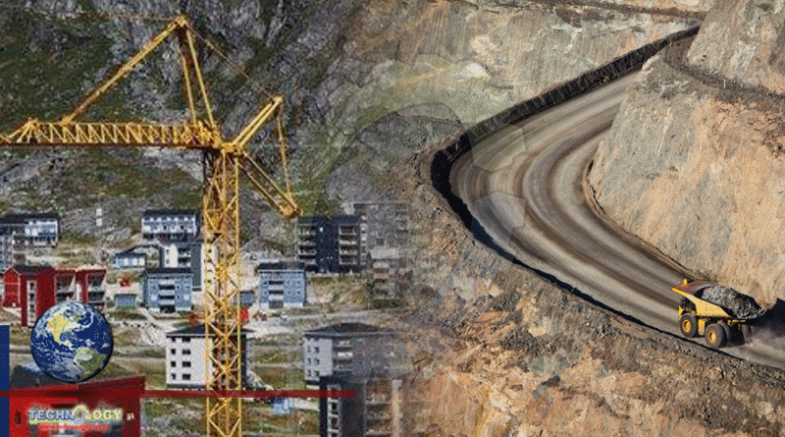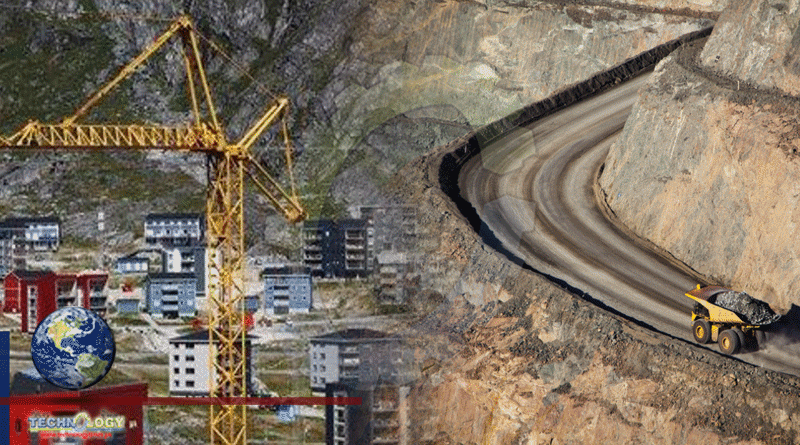Environmental Scientist At SRK Consulting Noted That Climate Change Is Also Likely To Affect Livelihood Resilience Of Mining Communities.

Climate change is exacerbating many of the risks that mines already face in their daily operations, and needs to be factored into planning decisions right from the pre-feasibility stage of projects. Water management, for example, is becoming more complex as rainfall patterns in many areas start to change in frequency and intensity, according to Philippa Burmeister, principal scientist at SRK Consulting. “It has implications for infrastructure design, as it raises the risk of flooding, water insecurity and environmental damage.”
Water balance
As an example, she highlighted the importance of water balance as a key aspect of tailings dam design. Here, historical rainfall data is a crucial part of the information necessary to ensure dams’ safe operation in the long term. “As rainfall variability and intensity change, the historical data becomes less reliable in guiding design parameters,” she said. “Operations generally are more likely to be disrupted due to severe weather events like floods or droughts. For instance, heavier storm events may increase water volumes seeping into mine workings, requiring more pumping capacity.” Ashleigh Maritz, senior environmental scientist at SRK Consulting, noted that climate change is also likely to affect the livelihood resilience of mining communities.
Social licence
“As temperatures and rainfall patterns change, traditional forms of livelihood could be threatened, making communities more reliant on the mines for income and corporate social investment,” said Maritz. “The way that a mine engages with their stakeholders and supports communities is therefore critical, as it is vital to maintaining its social licence to operate.” She pointed out that an important outcome of climate change is likely to be scarcity of precious resources like water – which could set mines in direct competition with local communities. Rising average temperatures in some regions may also lead to the geographic spread of communicable diseases like malaria – which may affect employees and surrounding communities.
Impacts on public infrastructure will also have a knock-on effect for mines. More frequent flooding or drought will change municipalities’ planning and investment in water supply or stormwater facilities. This may disadvantage the mines or affect mines’ social license to operate. “This will demand not just a technical solution but careful relationship building, so that platforms are created for collaborative and long-term answers with buy-in from all stakeholders,” she said.
Risk and compliance
Burmeister said that mining clients are increasingly cognisant of climate change risk. Industry standards are evolving – even in advance of national standards or requirements. “With financial institutions also seeing the potential risks to their investments posed by climate change, they are increasingly stipulating that climate change issues are addressed in planning studies for mining projects,” she said. To effectively address the varied risks that accompany climate change, she emphasised that solutions need to be integrated.
In other words, technical input must be coordinated across a range of professional disciplines. It is crucial that climate change impacts be ‘mainstreamed’ into various technical disciplines if it is to be effectively addressed. “Our philosophy at SRK is that climate change must be considered by all disciplines in the project team,” she said. “This includes expertise in various facets of engineering, as well as in the natural and social sciences.”
SRK uses a range of quantitative and qualitative methods to investigate clients’ exposure to climate change risk. These include measuring the project’s greenhouse gas emissions as part of its environmental impact assessment, and applying climate change models to identify specific project risks posed by predicted changes in climatic conditions.
Innovating for sustainability
“By integrating SRK’s professional input, we ensure not only that clients are compliant with regulations, but that the many and varied risks of climate change are addressed in their projects,” she said.
“This makes them more sustainable and robust in the longer term.”
Maritz noted that the science of climate change modelling is relatively young, leading the company to take an adaptive and dynamic approach – while leveraging off partnerships to develop and apply the power of predictive modelling. “This assists us in pioneering strategies and tools to manage climate change risks, from initial mine design and operational technical inputs through to social transitioning and mine closure,” she said. “While monitoring is being undertaken extensively at most mine sites, the interpretation of the data is critical to identifying trends that could prevent undesirable events.”
Digital and data
A key concern for SRK has been the development of better data processing and analysis capacity for the considerable mine data that is already available. This helps guide decision-making around climate change and the risks it poses. “SRK recently established a dedicated data services unit that works closely with the climate change team to leverage and evolve the latest digital technologies” she said. “For instance, as part of an innovation project, the team is developing an interactive mining map of South Africa; this provides a coordinated source of geo-located data on various aspects and stages of mining.”SRK is also looking at developing site-specific climate change-related rainfall models for its mining clients, to better inform their project and operational planning.To support its ongoing innovation efforts, the company holds an annual innovation conference that fosters collaboration between specialists and opens doors to valuable applications.
About Philippa Burmeister
Philippa has been involved in integrated environmental management for the past 17 years and is a Principal Scientist at SRK Consulting. She holds a BSc (Honours) in Environmental Science from the University of Rhodes, Grahamstown and is a registered Professional Scientist with SACNASP as well as a registered Environmental Assessment Practitioner with EAPASA.
More recently, Philippa specialised in air quality and climate change and is a member of both the National Association for Clean Air and International Association of Impact Assessors, South African Chapter. She has been involved in the development of air quality and climate change policy including the 2017 review of the National Framework on Air Quality Management.
Philippa partners with business and government to identify and execute innovative sustainability solutions to strategic challenges. The focus of her work is the identification of environmental opportunities and constraints leading to the sustainable use of natural resources to efficiently meet socio-economic needs.
About Ashleigh Maritz
Ashleigh has 12 years’ experience in the field of environmental science and management and is a Senior Environmental Scientist at SRK Consulting. She holds a BSc in Natural and Environmental Science, a BSc Honours in Biochemistry and a MSc in Biochemistry from the University of Johannesburg. Ashleigh is a registered Professional Scientist with SACNASP as well as a registered Environmental Assessment Practitioner with EAPASA.
She is a member of NACA and has a keen interest in the field of climate change, having contributed to many opinion pieces and publications on this topic and is currently assisting with developing a climate change initiative in SRK Consulting globally. Ashleigh has been involved in undertaking climate change assessments for the mining sector as well as providing support to the municipal sector to ensure that climate change aspects are included in various policies and plans.
This news was originally published at Mining Review
